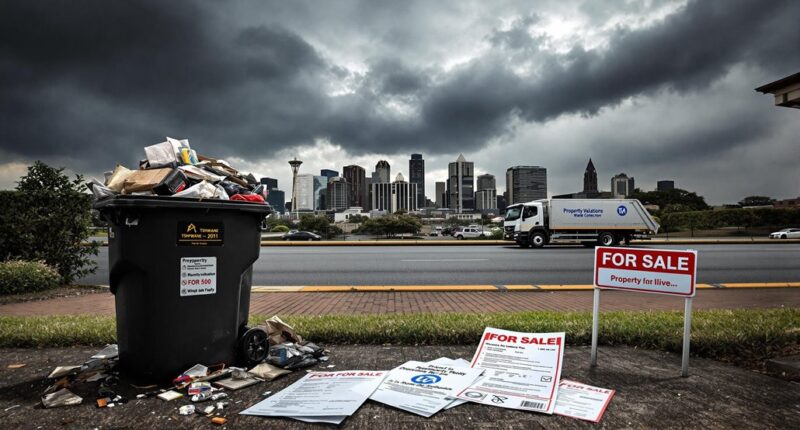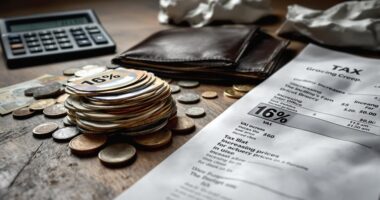A South African city plans to introduce a new “cleansing levy” on properties valued over R250,000 starting July 2025. The monthly charge of R185 for households and R194.37 for large vacant lands affects both those using municipal and private waste services. The controversial tax aims to generate R540 million annually, despite opposition from residents, AfriForum, and the Democratic Alliance. This levy comes alongside proposed increases in electricity, water, and other municipal rates.
Homeowners in Tshwane are facing a financial squeeze as the city plans to introduce a new cleansing levy targeting properties worth over R250,000. The controversial tax will charge R185 per month for households and R194.37 monthly for open stands larger than 150,000 square meters. If approved, the levy will take effect on July 1, 2025.
The new tax applies to all qualifying properties regardless of whether they already pay for private waste collection services. City officials expect to generate about R540 million annually from approximately 194,400 households and 62,000 businesses through this initiative.
Many residents are upset about what they see as double taxation. Those already paying private collectors could find their refuse costs doubling. AfriForum has criticized the move, calling it unfair to force residents to pay twice because poor municipal service drove them to seek private options in the first place.
The proposed cleansing levy unfairly punishes residents who turned to private waste collection only after municipal services failed them.
The Democratic Alliance (DA) has voiced strong opposition to the proposal. They’ve raised concerns about unclear application details and pointed out that similar proposals were rejected in the past. The DA also questions whether the city can realistically achieve its revenue targets given historical collection problems. This skepticism comes as SARS has been allocated R3.5 billion to enhance tax collection efficiency nationwide.
This new levy comes amid several other proposed tariff increases for the 2025/2026 financial year. Residents face a 12% increase in electricity costs, 13% higher water rates, a 6% jump in sanitation fees, and a 4.6% rise in municipal refuse removal charges. These hikes coincide with rising property valuations, creating additional financial pressure. South Africa’s current high debt levels at 75% of GDP further compound the challenges faced by ordinary citizens.
City officials defend the increases, saying they’re attempting to balance revenue needs with fair adjustments. The municipality projects an operating revenue of R53.6 billion for 2025/2026 and aims for a surplus of R1.3 billion, with R2.4 billion earmarked for infrastructure development.
Legal challenges may lie ahead. AfriForum argues the fixed fee structure violates Section 74(2) of the Municipal Systems Act, which requires tariffs to be based on actual usage rather than flat rates. They believe residents shouldn’t pay full costs for services they don’t fully use.
The city justifies the levy by claiming that private waste collectors still use municipal landfills, creating costs that aren’t currently covered. However, critics worry the high rates could lead to increased non-payment, worsening the city’s debt collection challenges.
Despite the mayor’s assurances that affordability remains a priority amid high living costs, many residents and opposition groups remain skeptical. With collection rates historically below 90%, questions persist about whether the ambitious revenue targets can be met without placing an unsustainable burden on Tshwane’s property owners.
Conclusion
This new tax has sparked strong reactions across Cape Town. Officials claim it’s needed to fix the city’s aging infrastructure, while critics worry about its impact on struggling families. As residents prepare for higher costs, both supporters and opponents are watching closely to see if the promised improvements will justify the financial burden on taxpayers.








